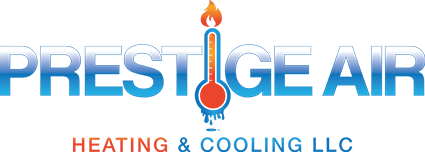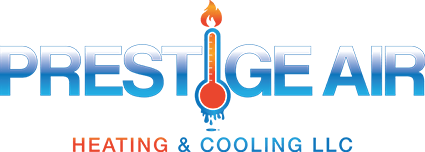Signs Your HVAC is Losing Efficiency
In case you didn’t know, an HVAC system can account for about 40% of your home’s energy use. That’s almost half of your home’s energy. The older your heating and cooling system is, the less efficient it becomes.
We use our HVAC systems on a daily basis, and they help us remain comfortable in our homes. But what happens when they begin to show signs of needing repair, and cause your energy bills to surge?
Getting a replacement HVAC system is one of the most costly expenses you can have, and sometimes, needing a replacement can happen when you least expect it. Our team at Prestige Air Heating & Cooling, LLC wants to help you protect your investment with these signs that you’re losing money on an inefficient system.
1. Unusually High Electric Bill
If your electricity bills have been consistent over the past few years or months, and you notice a sudden spike in how much it costs, your heating and cooling system may be the problem. Sudden spikes in your bill are almost always directly related to your HVAC system, meaning that your system may have to work harder to provide enough hot or cold air for your home.
When your system works harder, it uses more energy to operate, making it less efficient as time goes on. If you notice discrepancies with your electricity bill, we suggest looking at your HVAC system for issues with help from a professional HVAC technician. A technician will inspect and diagnose your system, fix any issues, or suggest and install a replacement system, especially if it’s an emergency.
2. An Older Unit
The older your unit is, the less efficient it becomes. HVAC systems usually last between 15 to 20 years, depending on how often it’s been maintained and if repairs are made on time. An older unit may require more maintenance and repairs if it’s not properly taken care of.
3. Spending More on Repairs
If you find yourself spending more on repairs than usual, then your HVAC system is becoming less efficient. A good rule of thumb is to buy a new one once repair costs are a third of the cost or more it would take to replace your existing system. In some cases, your HVAC technician may recommend replacement if they notice your system is beginning to slow down.
4. Unusual Sounds
Most modern heating and cooling systems aren’t very noticeable when they’re running. You may not even notice when they kick on, and if you’re familiar with your unit, then you know what it should sound like when it kicks on normally.
However, if your system kicks on and you hear a strange sound coming from the unit, then that could be a sign that something is wrong. If you hear unfamiliar noises, you should take action and contact a local HVAC company to diagnose the problem. Noises like screeching, banging, knocking, humming, and squealing are all cause for concern, and should always be looked into for the sake of your system and to save you money on repair costs.
5. Thermostat Malfunction
Does your heating and cooling take a while to kick on, or not kick on at all? The issue could be with your thermostat. A faulty thermostat could either mean a problem with your system that directly affects your thermostat, or your thermostat needs to be repaired or replaced.
Either way, if you turn your thermostat to a certain temperature and your home doesn’t feel comfortable, then you should call on a technician to inspect for repairs.


